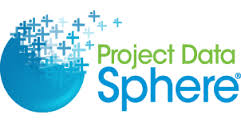 The Pistoia Alliance, a global, not for profit alliance that works to lower barriers to innovation in life sciences R&D, is calling upon the industry to improve collaborative efforts to use patient data to its full effect. In a series of keynote speeches delivered at The Pistoia Alliance’s annual member conference in London, speakers from Amgen, Accenture and AstraZeneca, discussed the need to more closely connect outcomes data with the R&D process – to help pharmaceutical companies focus their research efforts and deliver real benefits to patients. Building machine learning and deep learning systems, and incorporating data from therapeutic interventions or diagnostics into R&D is technologically challenging, and would benefit significantly from industry-wide pre-competitive collaboration...
The Pistoia Alliance, a global, not for profit alliance that works to lower barriers to innovation in life sciences R&D, is calling upon the industry to improve collaborative efforts to use patient data to its full effect. In a series of keynote speeches delivered at The Pistoia Alliance’s annual member conference in London, speakers from Amgen, Accenture and AstraZeneca, discussed the need to more closely connect outcomes data with the R&D process – to help pharmaceutical companies focus their research efforts and deliver real benefits to patients. Building machine learning and deep learning systems, and incorporating data from therapeutic interventions or diagnostics into R&D is technologically challenging, and would benefit significantly from industry-wide pre-competitive collaboration...
AstraZeneca
See the following -
Special Report: When the Drugs Don't Work
Welcome to a world where the drugs don't work...for decades scientists have managed to develop new medicines to stay at least one step ahead of an ever-mutating enemy.
Now, though, we may be running out of road. MRSA alone is estimated to kill around 19,000 people every year in the United States -- far more than HIV and AIDS -- and a similar number in Europe. Other drug-resistant superbugs are spreading. Cases of often fatal "extensively drug resistant" tuberculosis have mushroomed over the past few years. A new wave of "super superbugs" with a mutation called NDM 1, which first emerged in India, has now turned up all over the world, from Britain to New Zealand.
- Login to post comments
The Appeal of Graph Databases for Health Care
 A lot of valuable data can be represented as graphs. Genealogical charts are a familiar example: they represent people as boxes, connected by lines that represent parent/child or marriage relationships. In mathematics and computer science, graphs have become a discipline all their own. Now their value for health care is emerging. Graph computing made a significant advance this past February in the form of a Graph Data Science (GDS) library for the free and open source Neo4j graph database. Graph databases are proving their value in clinical research and public health; I wonder whether they can also boost analytics for providers. This article explains what's special about graph databases, and some applications in health care highlighted by recent webinars offered by the Neo4j company.
A lot of valuable data can be represented as graphs. Genealogical charts are a familiar example: they represent people as boxes, connected by lines that represent parent/child or marriage relationships. In mathematics and computer science, graphs have become a discipline all their own. Now their value for health care is emerging. Graph computing made a significant advance this past February in the form of a Graph Data Science (GDS) library for the free and open source Neo4j graph database. Graph databases are proving their value in clinical research and public health; I wonder whether they can also boost analytics for providers. This article explains what's special about graph databases, and some applications in health care highlighted by recent webinars offered by the Neo4j company.
- Login to post comments
The Pistoia Alliance Calls on the Life Sciences to Support Greater Collaboration to Overcome Technology Challenges
- Login to post comments
TransCelerate Shares Its Take On Risk-Based Monitoring Models And Tech
With clinical trial sponsors spending a sizable chunk of their huge Phase III trial budgets on source data verification (SDV) in return for questionable benefits, risk-based monitoring is an obvious target for TransCelerate BioPharma's R&D efficiency agenda. The Big Pharma consortium has further clarified its thinking on the topic in two research papers...
- Login to post comments
U.K. Health Service Sold Patient Data To Drug Companies
Some of the world's leading pharmaceutical companies have purchased patient data from the United Kingdom's National Health Service, according to a new registry, the London Telegraph reports. The registry comes shortly after the Telegraph reported that the NHS Information Centre improperly sold hospital data covering 47 million patients over 13 years to the insurance industry.
- Login to post comments
Universal Language: The Pistoia Alliance Takes on Indescribable Biology
Best Practices WinnerThe Pistoia Alliance has previously sponsored new methods for querying databases and the scientific literature, and a more effective algorithm for compressing and sharing genetic sequencing data. Over the past year, another Pistoia project, HELM, has entered the public domain after gradual development by an assortment of Alliance members. An open source language and set of editing tools for working with large biomolecules, HELM has already become a foundational part of research in at least three large pharmaceutical companies. Read More »
- Login to post comments
Winners Announced for Crowdsourcing and Data Sharing Competition to Drive Innovation in Prostate Cancer Research
 Industry leaders in biomedical research, oncology data sharing and computational science announced the winners of an innovative research challenge for prostate cancer using previously unavailable clinical data. The Prostate Cancer DREAM Challenge is the first research challenge in prostate cancer to marry crowdsourcing with data sharing, paving a new way to tackle key research questions about metastatic castration-resistant prostate cancer (mCRPC), an advanced form of the disease with poor outcomes. The Challenge called upon the cancer research and computational biology community to find solutions to key open clinical research questions about mCRPC and explore innovative research and modeling approaches. The three specific questions posed were to:
Industry leaders in biomedical research, oncology data sharing and computational science announced the winners of an innovative research challenge for prostate cancer using previously unavailable clinical data. The Prostate Cancer DREAM Challenge is the first research challenge in prostate cancer to marry crowdsourcing with data sharing, paving a new way to tackle key research questions about metastatic castration-resistant prostate cancer (mCRPC), an advanced form of the disease with poor outcomes. The Challenge called upon the cancer research and computational biology community to find solutions to key open clinical research questions about mCRPC and explore innovative research and modeling approaches. The three specific questions posed were to:
- Login to post comments
You Won't Believe the Outrageous Ways Big Pharma Has Bribed Doctors to Shill Drugs
 At the 2010 meeting of the American Psychiatric Association in New Orleans, a psychiatrist from the East coast shared her anger with me about the recent clamp down on Pharma financial perks to doctors. Before news organizations and the 2010 Physician Financial Transparency Reports (also called the Sunshine Act, part of the Affordable Care Act) reported the outrageous amount of money Pharma was giving doctors to prescribe its new, brand-name drugs, there was almost no limit to what was spent to encourage prescribing...
At the 2010 meeting of the American Psychiatric Association in New Orleans, a psychiatrist from the East coast shared her anger with me about the recent clamp down on Pharma financial perks to doctors. Before news organizations and the 2010 Physician Financial Transparency Reports (also called the Sunshine Act, part of the Affordable Care Act) reported the outrageous amount of money Pharma was giving doctors to prescribe its new, brand-name drugs, there was almost no limit to what was spent to encourage prescribing...
- Login to post comments
“Open Source” Drug Discovery - €196M Program Launched
Major pharma firms have joined together in a consortium with academics and SMEs that will invest €196 million in a new project to give a boost to ‘open-source’ drug discovery in the EU. Read More »
- Login to post comments